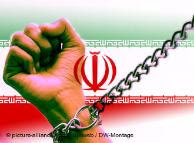| http://english.aljazeera.net/indepth/opinion/2011/03/2011314135126922189.html | ||
Forget for a minute that no one knows who committed the crime and that certainly no one believes that the killer was associated with Abbas. Also, lay aside the fact that Netanyahu has never condemned or even expressed remorse over the killing of 300 plus Palestinian children by the IDF during the Gaza war. (In fact, one would be hard pressed to find any Israeli government that ever even criticised the killing of Palestinian children by the IDF, although many hundreds have been killed over the last decade). None of that is anything new. What is new is Israel's decision to libel the Palestinian Authority (and not just Hamas) which until very recently has been praised by Israel as its partner. That change became evident during the last month when AIPAC (Israel's lobby in America) started attacking Abbas and the PA, returning to the style of the bad old days when the lobby viewed all Palestinians as one and the same: as enemies of Israel. There are three reasons why monitoring AIPAC (the American Israel Public Affairs Committee) is a valuable use of time for anyone following events in the Middle East. The first is that AIPAC faithfully reflects the positions of the Netanyahu government (actually it often telegraphs them before Netanyahu does). The second is that AIPAC's policies provide advance notice of the positions that will, not by coincidence, be taken by the United States Congress. And third, AIPAC provides a reliable indicator of future policies of the Obama administration, which gets its "guidance" both from AIPAC itself and from Dennis Ross, former head of AIPAC's think tank, the Washington Institute for Near East Policy, and now the president's top adviser on Middle East issues. The next few months, as AIPAC prepares for its annual conference (May 22-24), will be especially fruitful for AIPAC watchers. The conference is a huge event, attended by most members of the House and Senate, the prime minister of Israel, and either by the president or vice president of the United States. It is also attended by thousands of delegates from around the country and by candidates for Congress who raise money for their campaigns at the event. This year, the leading Republican candidates for president will also be in attendance, all vying for support by promising undying loyalty to the AIPAC agenda. The conference or the egg? The conference actually begins long before it convenes at the massive Washington Convention Centre. Right now, AIPAC's top officials are deciding which policies are the most important to be conveyed to the hundreds of officials who will be in attendance. Those policies will constitute AIPAC's agenda not just for the conference but for the next 12 months (see last year's AIPAC policy book here[PDF]). In recent years, AIPAC's main message has been about Iran and its view of the dangers posed by the Iranian nuclear programme. Speaker after speaker at various AIPAC conferences over the past decade (including, most histrionically, prime minister Benyamin Netanyahu) has invoked the Holocaust when discussing the possibility of an Iranian nuclear weapon. These speakers laid the groundwork for AIPAC's presentation of legislation imposing "crippling sanctions" on Iran - along with the declaration that the military option remained "on the table" if sanctions failed to end Iran's nuclear program. Most of the sanctions legislation enacted by Congress and signed into law by the president originated at AIPAC. But this year Iran will have to compete for attention with AIPAC's worries about the democratic revolutions that are sweeping the Arab world. For AIPAC, as for Netanyahu, those revolutions have already turned 2011 into an annus horribilis and the year is not even half over. Themes Early indications are that the main theme that will dominate the conference will be that Israel, once again, has "no partner" to negotiate with. This is an old theme, but one that receded as the Israeli right came to view the Palestinian Authority (led by Mahmoud Abbas and Salam Fayyad) as not only partners but as collaborators in maintaining the status quo. As Al Jazeera's "Palestine Papers" demonstrated, Abbas and Fayyad rarely said "no" to the Netanyahu government - which made them the only kind of partners acceptable to the Netanyahu-Lieberman-Barak troika. But, fearing that it might be next to fall to democracy, the PA started showing some spine recently. It refused to yield to US and Israeli demands that it shelve the United Nations Security Council resolution condemning settlements. It absolutely refuses to negotiate with Israelis until Israel stops gobbling up the land they would be negotiating over. And, most disturbing of all to Netanyahu and company, it says that it intends to unilaterally declare a Palestinian state this summer. Netanyahu, who needs the illusion of movement to ensure that there isn't any, is suddenly feeling the heat. Even Angela Merkel, Germany's chancellor and a staunch Israel backer, both supported the UN resolution condemning settlements and told Netanyahu, in a well-publicised February 24 phone call, that the Europeans are sick and tired of him. Haaretz reported: |
۱۳۹۰ فروردین ۱۳, شنبه
AIPAC's newest strategy
اشتراک در:
نظرات پیام (Atom)







هیچ نظری موجود نیست:
ارسال یک نظر